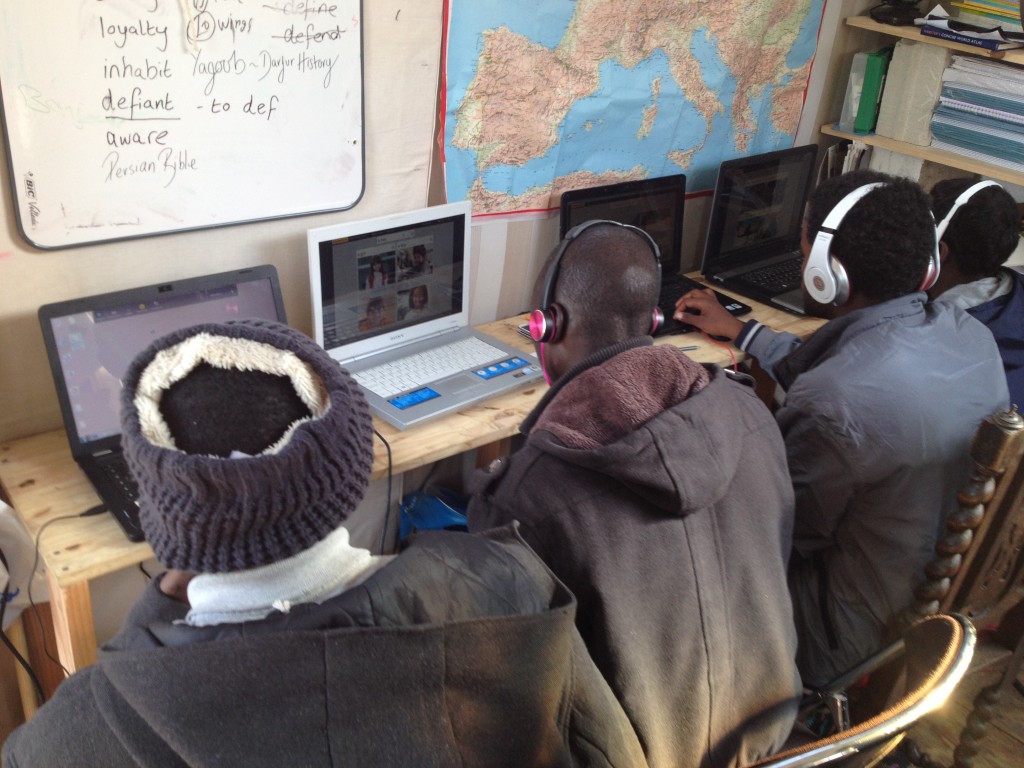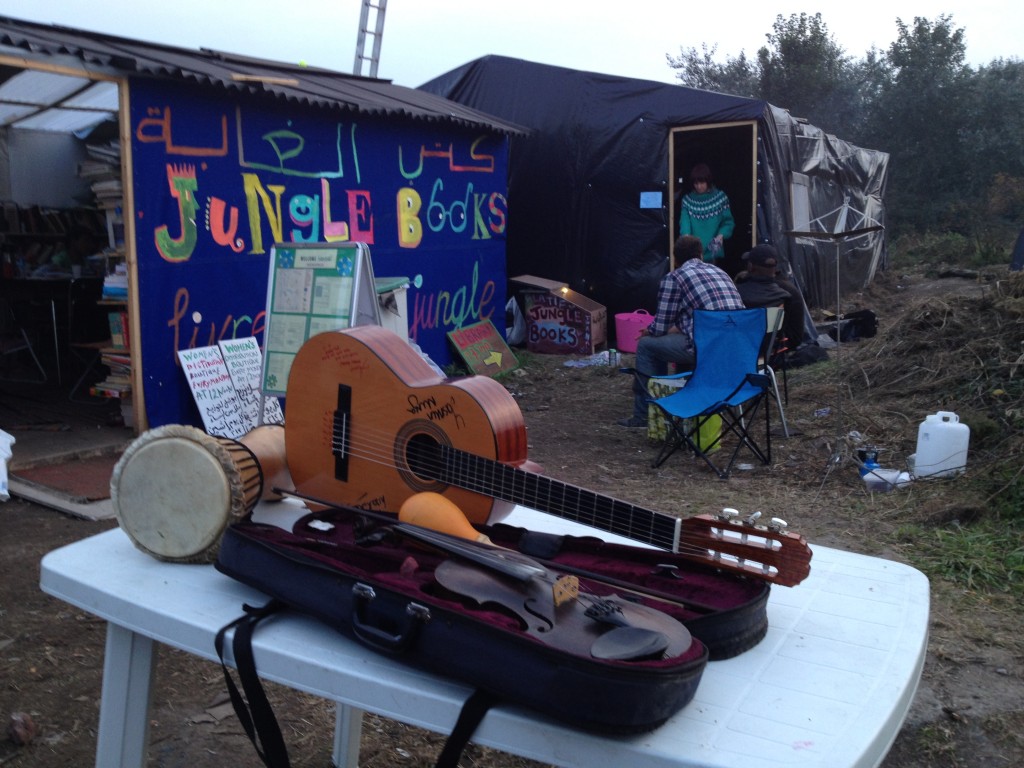“Every day the refugees sit of their own accord and read through an English-Arabic dictionary for hours at a time. The appetite to learn is immense.”
Roughly 4,000 refugees currently call the notorious “Jungle” Camp in Calais, France their home.
With more arriving daily it is quickly becoming a place that is continually growing with ever-changing needs. However, amidst the day-to-day worries about where the next meal will come from or how to travel onwards to safety, there is a space where refugees can take time to relax, learn and feel safe by engaging in regular activities such as poetry readings and music events.
Rowan Farrell, a freelance photographer, has spent the last few months volunteering at a makeshift library that has been built in the Camp. He speaks to the IPF and reflects on his experience living there.
Can you give us an overview of the work you are doing there and why you decided to help?
I first went to the Jungle in August to see it for myself and perhaps take some pictures. It didn’t take long to realise that all the standard pictures had been taken and what was really needed was physical help. I met Mary Jones – who started the library in July – and realised that of all the ad hock volunteers and “civilian” projects in the camp, Mary had the most personal relationship with people on the camp and with her library. She gave [them] something that no one else could – a safe, sheltered place for all nationalities to come and learn, read and talk, under the calming weight of books.
One of the things that attracted me to the library in the first place is seeing how Mary Jones treated every single person who came to her as the most important person in the camp. I try to act the same way. Whoever wants help finding a book, reading a text or securing some other type of aid, I try to focus on them at the moment they ask.
 What is the general feeling in the camp right now?
What is the general feeling in the camp right now?
People are worried about where their next meal will come from, if the police will beat them that evening. Should they try and jump on a train, a truck or try in another country? They are very worried about being detained, as their rights are not respected by the authorities. They fear the lawyers and interpreters that are provided to represent them.
Nothing worries most refugees more than being deported back to their countries.
Many talk about different ways to cross to the UK or whether they should apply for asylum in France. They talk about home and future prospects. They talk about making a better camp where they are sleeping but still try and escape each night.
What would you like to see come out of this project ultimately?
I would like to see refugees organise together and shout with one voice, “We are human and the Jungle is for animals”. And the authorities across Europe to listen and say, “Yes you are. Please come inside and be warm, be fed, be safe, be human”. Of course, refugees shout this every day but not many people in positions of power listen.
 How can the refugees be helped?
How can the refugees be helped?
There are two ways to help refugees. One way is to treat the symptoms of being a refugee. Homeless, stateless and without local language they have no power to act in European countries. I, as a UK citizen, have the power to provide food, shelter, warmth and education. I can purchase petrol for generators, gas bottles for cooking and heating. I can cross borders to pick up aid gathered by other citizens. I point my camera in the face of police aggression where if a refugee did likewise, they would get a baton to the face.
Refugees can do none of these things. They have no power, so I exercise mine on their behalf.
The second way is to work toward a solution. That is the world’s wealthiest countries providing to those who have come seeking help.
How does the library work?
Many people bring us books on the weekend and we are buying specific books from the Internet – books in Arabic, Pashto, Urdu, Farsi, Kurdish and Tigrinya. At the moment it is mostly men, as men make up 95% of the camp, but some kids hang around as well. We are soon to build a new library just for women and children, whilst also encouraging women to come into the original Library.
We encourage people to take and keep any book they want. The library has a certain deferential quality. Large amount of books can do that. And it all essentially belongs to the refugees. The whole camp runs on mutual respect.
To find out more about the Calais library, visit their website and like their Facebook page.

